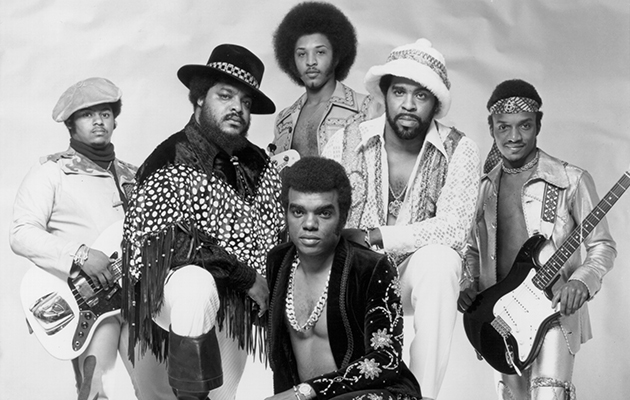Originally published in Uncut's September 2015 issue (Take 220) "Harvest For The World’ refers to a peaceful gathering,” explains songwriter Ernie Isley, “where every human being is invited, and where no-one will be hindered in any way from participating.” Originally a vocal trio comprisin...
JASPER: I remember Ernie singing those lyrics and playing the acoustic guitar. He had the majority of the melody and the verse and a lot of the lyrics. After that we just got together and put it on a four-track recorder. I was playing the keyboard parts. During that time we always recorded in California. When we got an idea, we would always put it down on the four-track and work with it that way, so we were sure when we went to California that we were well-rehearsed with all our parts.
ISLEY: The words are what made the song timeless – we had quite a few high schools asking for permission to reprint the lyrics for their yearbooks when that song was out.
JASPER: At that time, Vietnam had just ended, a lot of people were still missing in action, the economy wasn’t that great. It was like it is now, there was a big difference between the ‘haves’ and the ‘have-nots’. That’s kind of what this song is talking about, asking a rhetorical question, ‘When will there be a harvest for the world? When will there be a time that people have an equal share of what is going on, when will they have equity in their lives?’ Basically we know – the return of Christ, that’s when it’s going to be, because he’s a god of equity so that’s when it will ultimately occur. But the song is just asking that question.
ISLEY: There’s a reference in the New Testament about “the harvest is plenty, but the labourers are few” – they’re praying that there be labourers to go out and gather in the Lord’s harvest.
CECIL: My main thrust at that time was to get people to do socially conscious songs. So, “Harvest…” was gratifying to me. I tried from Stevie Wonder on, to get people to write socially conscious stuff. I felt that we had a big opportunity to reach people through the music, and I thought it was very important to have something to say rather than just playing love songs. It was using the platform to spread messages, preferably positive rather than critical. I wasn’t into trying to make complaints. “Harvest For The World” was supposed to be an uplifting song about how things could be made better rather than complaining about how bad things were.
ROBERT MARGOULEFF (former Isleys engineer): You can imagine what it was like on the road for an all-black band [when the Isleys began]. Even today, even with Obama, there’s a lot of racism still. They lived in a hard time – the blacks went through the kitchen, the whites went through the front door. Those guys toured pretty hard places and paid a lot of dues, and it’s to their credit that they kept it in the family and were able to pull it off and write really inspired stuff. I think it all came from their gospel and R&B roots. They really had a sensibility of their gospel roots, where they came from, but they also had an extremely strong sense of family.
CECIL: O’Kelly was the one that held everything together. He was the guy who would be the one who set up the dates; he was the one who signed all the work orders. O’Kelly was the boss. Rudy really wanted to be the lead singer, but he didn’t quite have Ron’s voice and power. He wanted to be out front doing his thing, so he was fairly flamboyant. He was also the guy who collected the money at the gigs so he had a gun, a Magnum. He had to qualify to carry it as a concealed weapon, it was surreal – the only place that he could qualify was on the FBI shooting range.
JASPER: We didn’t have much time to spend out in Los Angeles, and it was expensive to go out there and stay in hotels, so we wanted to make sure we could record in a timely fashion, but still be well-rehearsed and have a good product.
CECIL: What happened with the Isleys was they would have everything pretty well together before they came into the studio. I only got involved when it actually came down to recording it, and my production aspect was in the studio rather than in pre-production, so the first time I heard the song was when they were running it through for me.



